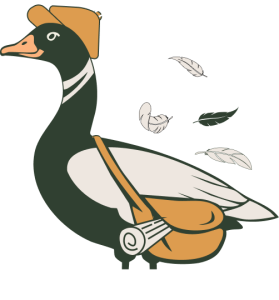For generations, the journey into professional life began at the bottom. You took an entry-level job, did the grunt work, and learned by repetition. Whether sorting files, reconciling reports, or fielding customer calls, those first jobs taught you the game’s rules. But in 2025, as Gen Z tries to break into the job market, that well-worn on-ramp is starting to vanish. Why? Because artificial intelligence has moved in.
AI isn’t just streamlining workflows—it’s swallowing the very tasks that used to train early-career employees. And it’s happening at the same time that economic instability is shaking the job market. The result? A generation of workers facing an entry gate with no clear door.
Learning from the Past: Two Tales, Two Outcomes
History offers perspective. Take Arthur, a student at Ohio State University during the Great Depression. He gave up football to focus on grades, knowing that academic excellence was his only ticket to employment in a depressed economy. He went on to secure a stable career with the federal government.
Contrast that with Jim, a tech graduate during the late-90s dot-com boom. He landed a high-paying job before graduation—more than most of his peers. But as the bubble burst, Jim was among the first to let go. His high pay didn’t match his lack of experience, and there was no foundation to fall back on.
What unites these stories? In both, the environment dictated the trajectory. Arthur adapted to scarcity; Jim got swept up in excess.
Now, Gen Z must adapt to a third force: automation.
Gen X entered the workforce during recessions and market corrections. They often faced a frustrating paradox: job listings demanded experience for entry-level roles, yet no one would give them the chance to gain it.
Many took unpaid internships just to get in the door, especially before a landmark moment in 2011, when Fox Searchlight Pictures was sued over unpaid internships. That lawsuit reshaped the landscape, making unpaid labor a legal and reputational liability. Since then, most internships have become paid and fairer. But the scars of inequity remain: for those without financial support, unpaid roles were often out of reach.
Now it’s Gen Z’s turn—and the rules are shifting again. Today’s graduates face a strange blend of low unemployment figures and high competition. For example, an MBA graduate recently applied to 400 positions before finally landing a marketing job at a salary that reflected neither desperation nor boom. Economists might call this a “normative equilibrium,” but for job seekers, it feels like a tug-of-war with no clear winner.
Adding to the complexity: the rise of AI.
Entry-level marketing analysts, junior accountants, legal clerks—many of the positions once filled by fresh grads—are increasingly augmented or outright replaced by tools like ChatGPT, Jasper, and industry-specific automation software. That leaves fewer places to gain real-world reps.
No Rungs on the Ladder: A Structural Breakdown
Here’s the problem in HR terms:
- Level 1 jobs (introductory, basic tasks) are being automated.
- Level 2 jobs now require a deeper understanding, but companies are hiring new grads directly into them.
This creates a dilemma. If you pay a Level 2 wage, do you also train the employee in foundational skills? That’s expensive. But if you pay them a Level 1 wage, the role may be misclassified, triggering legal and equity issues.
Worse, it threatens the entire compensation structure. What’s a “promotion” when the ladder’s bottom rungs are gone? Organizations must reconfigure pay bands, training plans, and equity frameworks—fast.
Why Knowing the Basics Still Matters
Let’s say John is hired as a cashier. The register, powered by AI, calculates totals, tracks inventory, and classifies payments. But the moment the system goes down, chaos ensues. Does John know how to calculate tax manually? Reconcile inventory? Most likely, no. He’s never had to.
Now apply that to an entry-level accountant using AI to classify business expenses. If the AI misclassifies a major item and no one notices, what’s the risk? Financial misreporting. Bad decisions. Regulatory trouble. Without a foundation, new workers can’t spot errors or ask better questions.
AI may do the work, but someone still needs to understand the why behind it.
Looking Ahead: Adapt or Be Automated
The question isn’t whether AI will reshape work—it already has. The question is how we prepare new employees to thrive in a world where the training wheels are gone.
Colleges must rethink curricula to emphasize critical thinking, systems knowledge, and decision-making. Employers must invest in onboarding that goes deeper than just “how to use the tools.” And Gen Z? They’ll have to advocate for learning opportunities, not just job titles.
Because the stakes are high. If we don’t teach the foundation, the next generation won’t be ready when the system fails—and eventually, it always does.

